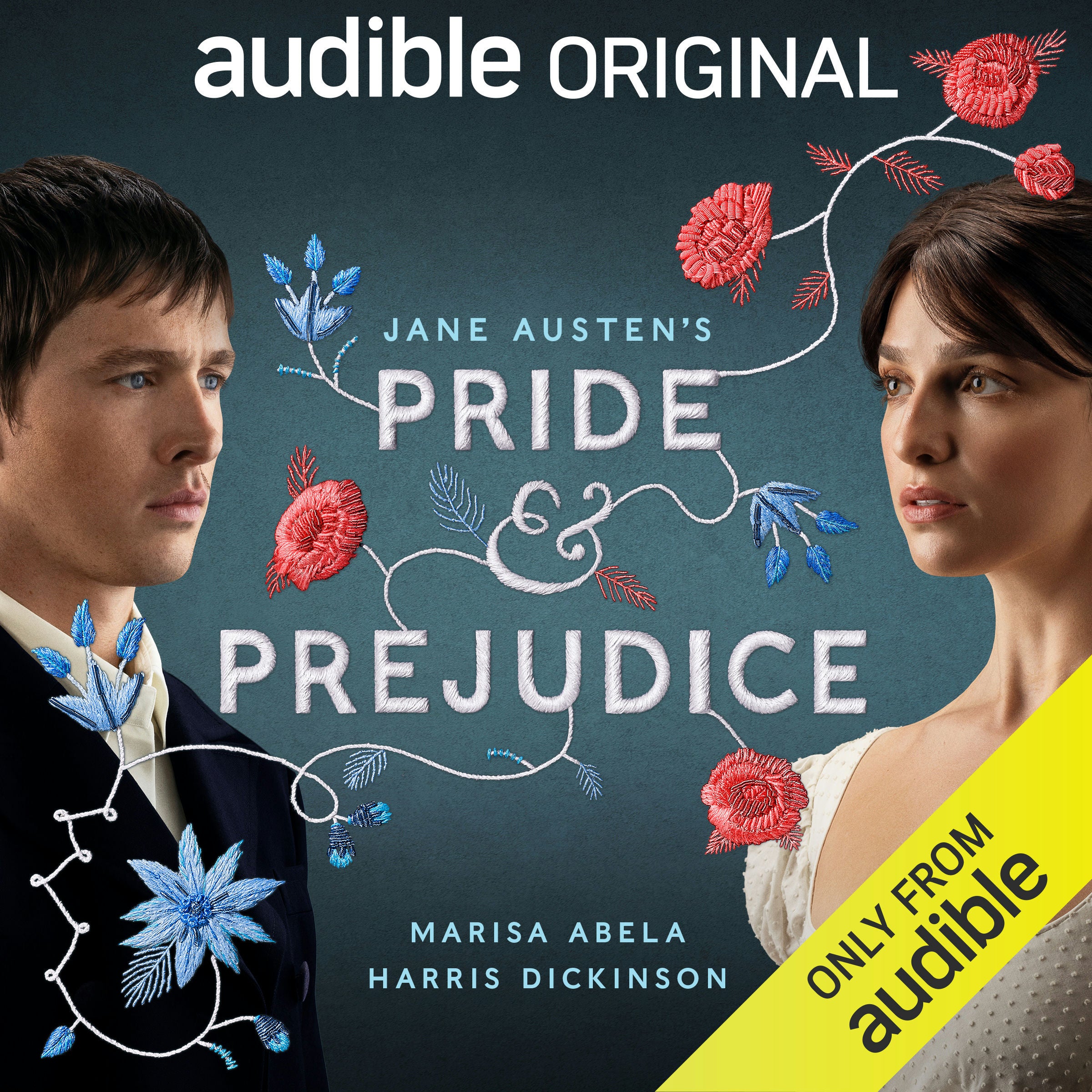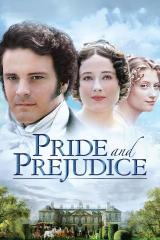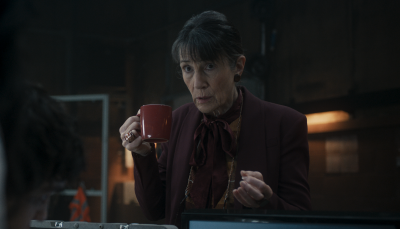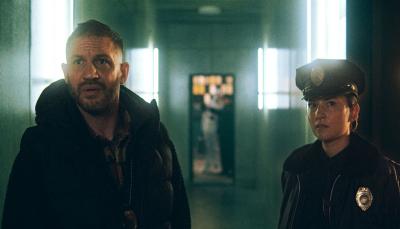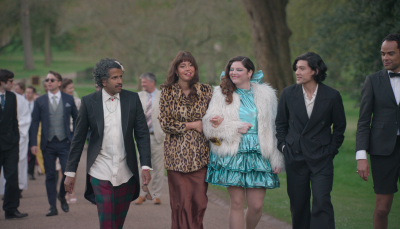The Sense & Sensibilities of Audible’s 'Pride & Prejudice' Adaptation
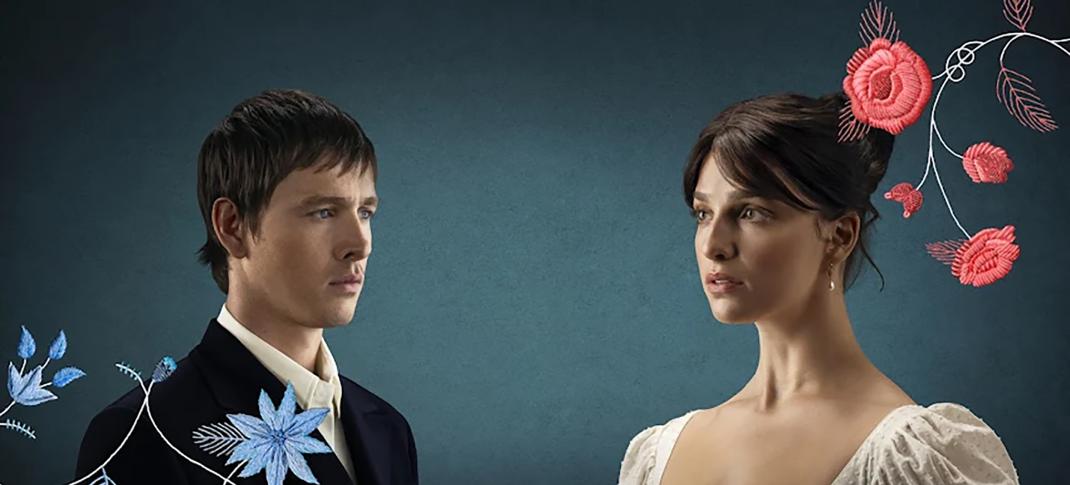
Harris Dickinson and Marisa Abela in Audible's 'Pride and Prejudice' Cover Art
Audible
So much of the most well-known adaptation of Jane Austen’s Pride & Prejudice work because of the visuals: the hand flex, the wet white shirt, the general brooding. But Audible’s recently released audio-only adaptation exhilarates the sounds; a Dove chocolate bar commercial of stillness and escapism crammed into noise-cancelling earbuds.
The story remains the same (and stop me if you’ve heard it before): Elizabeth Bennett is the opinionated second sibling of a middle-income family with five girls all of marriageable age. Her older sister, Jane, is the beauty, and the younger three just basically get in the way and make life difficult. Lizzy has no real interest in romantic pursuits until she finds a verbal sparring partner in the extremely wealthy and new-to-town Mr. Darcy. Literature’s favorite black cat boyfriend, Darcy, is interesting not so much because he plays hard-to-get as his and Lizzy’s whole relationship is a one-upmanship of wits to see who blinks first.
But this rendition has a modern, slyness to it that makes it feel fresh.
Adapted by playwright Lulu Raczka, directed by Dionne Edwards, and starring Marisa Abela (Industry) and Harris Dickinson (The Beatles Quadrilogy), the format is more like a radio play than a traditional dramatic reading of the novel. While she’s not officially the narrator, Abela’s Lizzy owns all the good lines and scenes, and we are meant to immediately side with her in this courtship charade.
That means it comes off as a child’s natural side eye to her parents when Lizzy responds to her father’s (Bill Nighy, who recently played the same patriarchal role in 2020's Emma) relenting to inquire about the new rich guy in town that “a single man in possession of a good fortune must be in want of a wife.” We believe Lizzy is going about this whole thing as if she doesn’t have any real stakes in it, allowing for lines like “I'm spared the awkward of a dance. How lucky pride” and “I vow to read” to come off as disdain and indifference to what she perceives as Mr. Darcy’s egomaniacal snobbery more than any protectiveness or hurt feelings she might have for the slights she’s overheard him make about her and her family (or, like any daughter of any mother ever, she makes for herself).
This, of course, makes it all the more enjoyable when she allows a sense of romance to blossom within her.
We’re also allowed to laugh at Darcy and sympathize with him. When he abruptly turns away from the Bennett family at the ball, the sharp sound design from Brain Audio means you can hear the scuff it’s making on the floor. Marianne Jean-Baptiste probably had a good time playing Lizzy’s pestering and persistent mother, regardless; however, the sound design to have her and Lizzy’s younger sisters talking over each other makes you feel like you’re in a henhouse. I don’t want to hang out with those women either, and I have way less than £10,000 a year.
And, most importantly, a scene later in the story where Darcy pulls twigs from Lizzy’s hair comes with all the unrequited heavy breathing that one would expect a romp in the woods would produce for these two will they/won’t theys.
The hearing, but not seeing, is also an effective way to have a star-studded voice cast without taking you out of the story. I appreciate Jessie Buckley’s Caroline Bingley, particularly her playfully mocking much more, without fighting the urge to scream that no one could think this or that actress to be Lizzy’s homely best friend. Similarly, Will Poulter is more easily buyable as the too-good-to-be-true Mr. Wickham and Toheeb Jimoh as the dopey Mr. Bingley.
The inability to actually see what she’s doing means that Glenn Close’s Lady Catherine De Bourgh comes off more as a woman simply trying to protect her daughter by ending any dalliances between Lizzy and Darcy than the campy evil rich lady who belittles dinner guests and tromps into other people’s homes (and seriously, when has one ever bothered to both-sides Lady Catherine De Bourgh?).
All of this seems to suggest that this is a production that is made for an audience that knows this story (or at least knows the bare bones of it, thanks to Joe Wright and Deborah Moggach, Helen Fielding, Andrew Davies, or the myriad of others who have either adapted or were inspired by Austen’s work). Its theme song is even musician Cosima’s sultry cover of “I Think We’re Alone Now.”
It is having fun without poking fun at the story that legions of fans still enjoy. And, because it comes in an easily pocketable digital format that can be popped into your ears while doing dishes or waiting for ballet or soccer practice to end, it’s escapism.
Audible’s adaptation of Pride and Prejudice is available for download from Monday, September 9, 2025. Jane Austen’s 250th Birthday Anniversary will occur on Tuesday, December 16, 2025.

